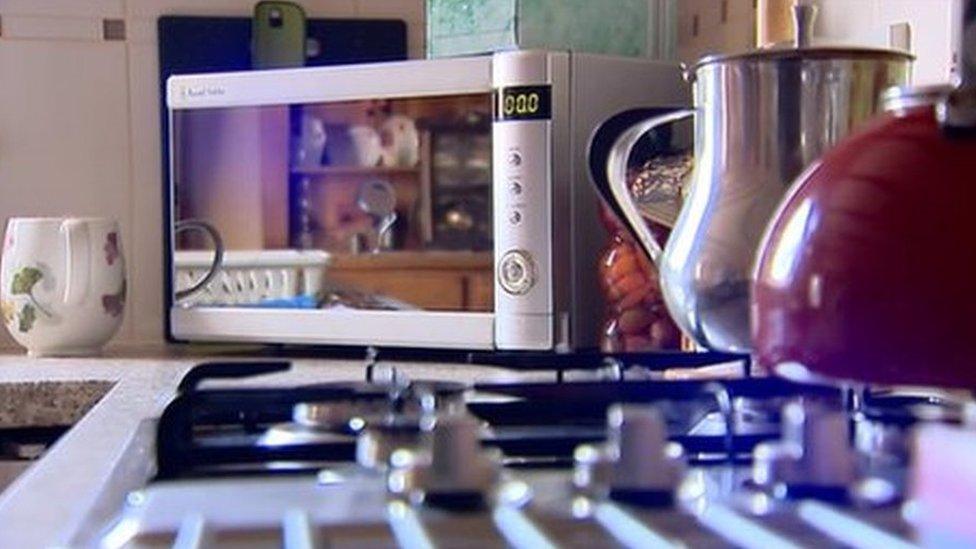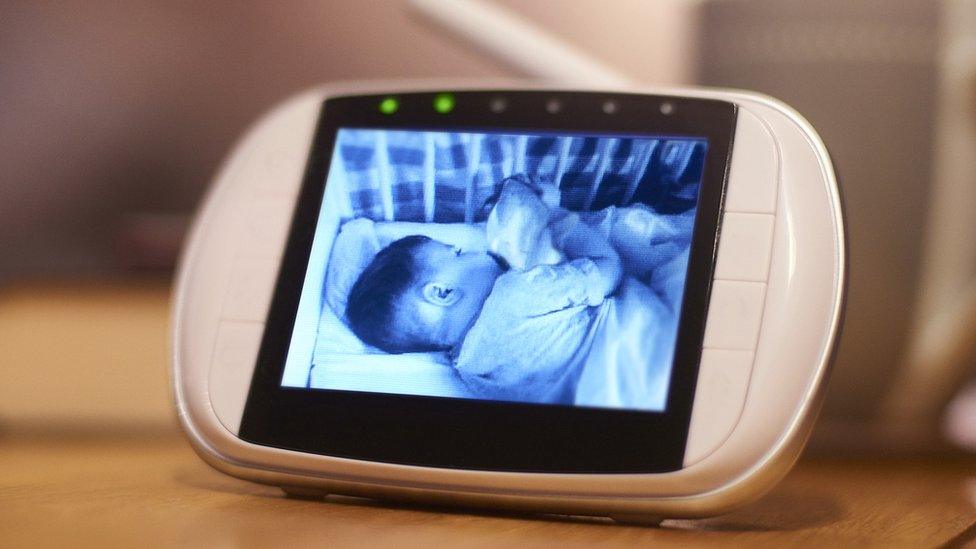Internet problems: On a go slow? Here's what could be to blame
- Published

Teams that usually meet in the office are reliant on their internet for video conferencing instead
With more people than ever before working from home because of the coronavirus pandemic, a decent internet connection has never been so important.
Have you ever wondered what could be slowing yours down?
A villager in Aberhosan, Powys, was left red-faced after discovering their old television was emitting electrical interference, causing the whole village to lose its broadband.
But which devices could be the culprits in your home?
Microwave ovens

Both microwaves and wi-fi emit electromagnetic rays
Communications regulator Ofcom has warned people to avoid using their microwave to get a faster internet.
Both microwaves and wi-fi emit electromagnetic rays in order to function - the former to heat up food, and the latter emits radio waves.
They both operate on a similar frequency, which can lead to interference.
"So don't use the microwave when you're making video calls, watching HD videos or doing something important online," Ofcom said.
Christmas tree lights

Everything that has electricity running through generates an electromagnetic field which can cause interference
The Christmas season means more people are at home with their families so broadband networks can be quite busy.
But Christmas tree lights can also slow your wi-fi, Ofcom has warned.
Wi-fi uses electromagnetic waves to send information to and from your broadband router and your mobile device or computer.
But everything that has electricity running through it also generates an electromagnetic field, and this causes interference to the electromagnetic waves attempting to travel through it.
Baby monitors

Could your baby monitor be slowing your wi-fi?
Any devices that transmits or receives a wireless signal is capable of causing an interference to a signal, so devices such as wireless speakers, baby monitors, walkie talkies and garage door openers could also be to blame.
Congestion

Too many devices?
The quality and range of wi-fi is affected by several things, particularly congestion, where nearby devices are using the same part of the spectrum, Ofcom says., external
So what can be done?
Suzanne Rutherford, Openreach chief engineer's lead for Wales, said: "We'd just advise the public to make sure that their electric appliances are properly certified and meet current British standards."
"And if you have a fault, report it to your service provider in the first instance so that we can investigate."
Ofcom suggests you keep your router as far away as possible from other electrical devices as well as those that emit wireless signals such as cordless phones or baby monitors.
It says routers should ideally be placed on a table or shelf rather than on the floor and should be kept switched on.
It also suggests ideally downloading films to phones and tablets just before bed when fewer people are using the internet
Ofcom has launched a free app called Wi-Fi Checker which allows you to test the quality of your signal and ways to make it better.
- Published22 September 2020

- Published13 May 2020

- Published27 June 2018

- Published12 September 2020

- Published25 March 2020
